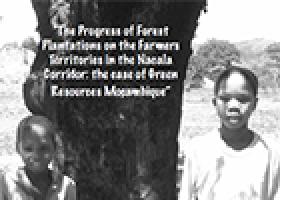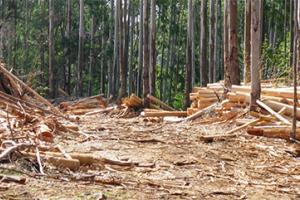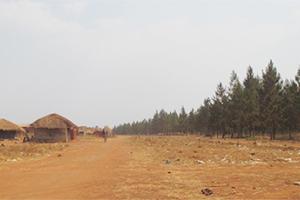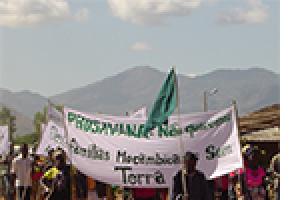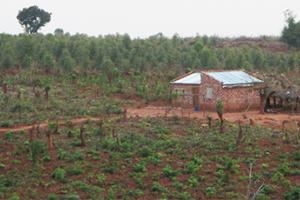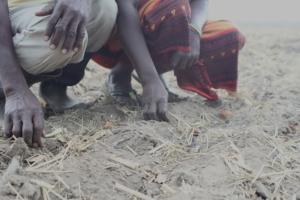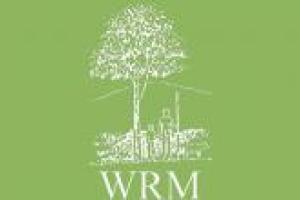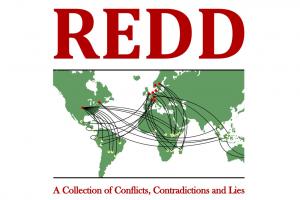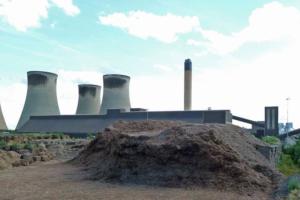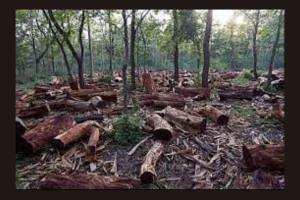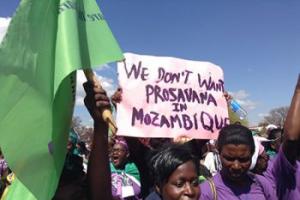The report “The advance of Forest Plantations on the Farmers Territories in the Nacala corridor: the case of Green Resources Mozambique” was launched in 2016 by the Mozambican organisations Livaningo, UNAC (National Peasants Union) and Justiça Ambiental/Friends of the Earth Mozambique, and written by Lexterra.
Mozambique
Other information
18 April 2017
Action alerts
11 October 2016
On September 30, a petition was delivered with 12,323 signatures from several national and international organisations, as well as from individuals, in solidarity with and support to the communities in Mozambique that struggle against the expansion of tree monoculture plantations. The petition has been submitted to the companies Green Resources in Norway and Portucel/The Navigator Company in Portugal, as well as to governmental institutions in Mozambique including the Ministry of Land, Environment and Rural Development and the Ministry of Agriculture and Food Security.
Publications
5 October 2016
Download the publication. Also available in Swahili.
Action alerts
13 September 2016
updated on September 22
Last week we asked your support for communities in Mozambique who are facing rapid expansion of timber monoculture plantations in their territories.
This message is to inform you that this Action Alert will continue open for sign-on´s until September 29. If you haven’t sent your endorsement yet, please do so!
Bulletin articles
21 March 2016
Bulletin articles
9 November 2015
"Nobody eats eucalyptus." With this statement farmers expressed their outrage when the company Aracruz Celulose expanded its monoculture eucalyptus plantations several years ago on arable land in Espirito Santo, Brazil. While the objective was to produce and export more pulp, Aracruz and other companies publicly promote their practices as "smart.” They claimed they only plant trees on "degraded" or "abandoned" land, for example. And now with the climate crisis, the FAO suggests adopting "climate-smart forestry" practices. The question that arises: Can we really consider current company
Other information
3 June 2015
Peasants in northern Mozambique are struggling to keep their lands and water sources, as governments and foreign companies move aggressively to set up large-scale agribusiness projects. The long-awaited ProSavana Plan for agribusiness development in the Nacala Corridor, inspired by the so-called “successful” agribusiness development in the Brazilian Savannah (cerrado) region, is out.
Other information
9 December 2014
A new report by the Oakland Institute introduces the term ‘carbon violence’ to describe the impact of Green Resources’ plantation operations in Uganda on local communities and their environment. Green Resources is a Norwegian-registered plantation company with 41,000 hectares of plantations in Mozambique, Tanzania and Uganda. The company’s plantations, certified under FSC, are used for timber products and generate carbon credits.
Publications
3 December 2014
REDD: A Collection of Conflicts, Contradictions and Lies presents summaries of reports from 24 REDD projects or programmes with a common characteristic: they all show a number of structural characteristics that undermine forest peoples' rights, or fail to address deforestation. As offset projects, they all fail to address the climate crisis because by definition, offset projects do not reduce overall emissions: emission reductions claimed in one place justify extra emissions elsewhere.
Bulletin articles
26 September 2014
